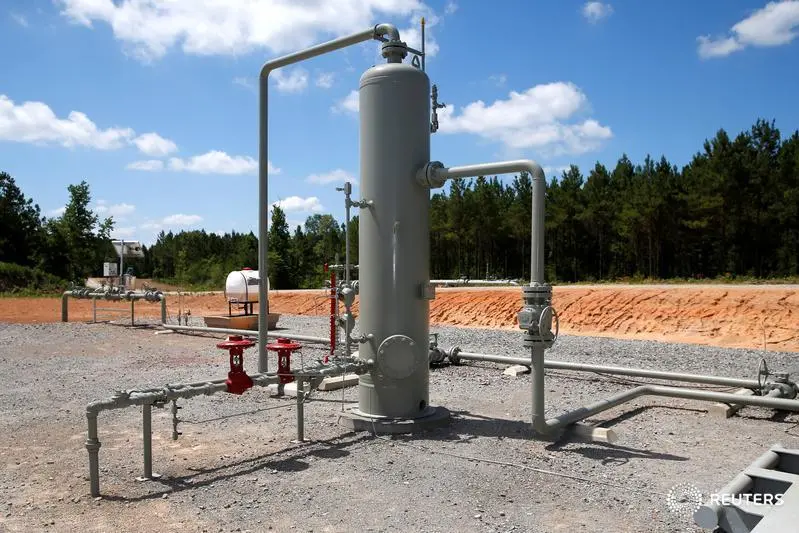PHOTO
- Oil prices regain some ground
- Global markets retreat on escalating U.S. China trade tensions
- Middle East markets lack interest, trade mostly in low volumes
- Dollar unchanged following the Fed’s decision
- Gold prices recover from the previous session’s drop
Oil prices
Oil prices rebounded early on Thursday after the previous session’s drop.
On Wednesday, oil prices fell as data from the American Petroleum Institute showed domestic crude inventories rose by 5.6 million barrels last week. A Reuters poll had forecast a fall of 2.8 million barrels. Official data from the United States Energy Information Administration is due later today.
Brent crude futures were up 25 cents, or 0.4 percent, at $72.64 a barrel by 0055 GMT, after dropping 2.5 percent on Wednesday.
U.S. West Texas Intermediate (WTI) crude futures increased by 26 cents, or 0.4 percent, to $67.92 a barrel. They fell $1.6 percent in the previous session.
Global markets
On Wednesday, the U.S. administration increased pressure on China for trade concessions by proposing a higher 25 percent tariff on $200 billion worth of Chinese imports.
Asian shares edged down following the renewed tensions between the two superpowers, tracking a drop overnight on Wall Street.
MSCI's broadest index of Asia-Pacific shares outside Japan dropped less than 0.1 percent in early trade while Japan's Nikkei was flat.
On Wall Street, the S&P 500 lost 0.10 percent on Wednesday but the Nasdaq Composite added 0.46 percent, extending its recovery from Monday's three-week low.
“The trade issues will continue to weigh on markets. On the whole, Japanese corporate earnings have not been bad but many companies remain cautious as they need to see the impact of trade frictions,” Masahiro Ichikawa, senior strategist at Sumitomo Mitsui Asset Management, told Reuters.
Middle East markets
Stock markets in the Middle East lacked triggers during Wednesday’s session, trading mostly in thin volumes.
Saudi Arabia’s index was flat. Heavyweight Al Rajhi Bank lost 0.6 percent while Saudi Electricity Co. fell 1.9 percent.
Arabian Cement fell 2.4 percent after it reported a second quarter net loss of 50.9 million riyals versus a profit of 35.5 million riyals a year ago.
Dubai’s index rose 0.8 percent as Emaar Properties and its subsidiary Emaar Malls rose 1.7 percent and 2.5 percent respectively.
Dubai Islamic Bank added 1.2 percent and Emirates NBD inched up 0.5 percent.
Neighbouring Abu Dhabi’s index dropped 0.3 percent as Etisalat dropped 1.2 percent.
Qatar’s stock market jumped 1.5 percent on Wednesday to reach a 9,976.51 level and closed at its highest level in 14 months.
Qatar National Bank and Qatar Islamic Bank rose 2.3 percent, and Commercial Bank jumped 4.1 percent.
Egypt's main index rose 0.6 percent to 15,670 points, its highest level for almost three weeks.
Property developer Talaat Mostafa jumped 2.6 percent and EFG Hermes rose 1.7 percent.
Kuwait’s index added 0.3 percent, while Bahrain’s index lost 0.4 percent and Oman’s index was flat.
Currencies
The U.S. Federal Reserve decided to keep interest rates steady in its meeting on Wednesday but characterised the economy as strong.
Against a basket of six major currencies, the dollar was unchanged at 94.641, in early trading on Thursday.
Precious metals
Gold prices recovered from the previous session’s drop early on Thursday.
Spot gold was up 0.2 percent at $1,218.22 an ounce at 0052 GMT, after losing 0.65 percent in the previous session.
U.S. gold futures were, however, 0.1 percent lower at $1,226.80 an ounce.
Gain a deeper understanding of financial markets through Thomson Reuters Eikon.
(Writing by Gerard Aoun; Editing by Shane McGinley)
(gerard.aoun@thomsonreuters.com)
Get this daily morning briefing in your inbox by subscribing here.
Our Standards: The Thomson Reuters Trust Principles
Disclaimer: This article is provided for informational purposes only. The content does not provide tax, legal or investment advice or opinion regarding the suitability, value or profitability of any particular security, portfolio or investment strategy. Read our full disclaimer policy here.
© ZAWYA 2018





















